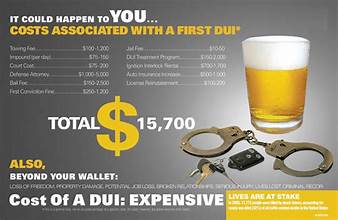Introduction
Recent changes to Driving Under the Influence (DUI) laws have significantly impacted first-time offenders. These changes aim to enhance road safety and reduce the occurrence of repeat offenses. Understanding how these new regulations affect first-time DUI offenders is crucial for anyone facing such charges. This article provides a comprehensive overview of the recent law changes, their implications, and essential information for first-time offenders.
1. Overview of Recent DUI Law Changes
Recent revisions in DUI laws vary by state but generally focus on increasing penalties, implementing stricter blood alcohol concentration (BAC) limits, and introducing new programs for offenders. Key changes include:
- Lower BAC Limits: Many states have reduced the legal BAC limit for drivers, making it easier for first-time offenders to be charged with DUI.
- Increased Penalties: Penalties for DUI offenses have become more severe. This includes higher fines, longer license suspensions, and mandatory community service.
- Mandatory Education and Treatment Programs: First-time offenders are now often required to attend DUI education programs or substance abuse treatment.
2. Penalties for First-Time DUI Offenders
The penalties for first-time DUI offenders have become more stringent. These penalties can include:
- Fines: The financial burden of a DUI conviction can be significant, with fines often ranging from several hundred to several thousand dollars.
- License Suspension: A first-time DUI conviction typically results in a license suspension. The length of the suspension varies by state but can be several months to a year.
- Community Service: Offenders may be required to complete a certain number of community service hours.
- Probation: In some cases, first-time offenders may be placed on probation, which involves regular check-ins with a probation officer and adherence to specific conditions.
3. Impact on Insurance Rates
A DUI conviction can have a substantial impact on insurance rates. Insurance companies view DUI offenses as high-risk behavior, leading to increased premiums for those convicted. Some insurers may even refuse coverage altogether. It is important for first-time offenders to shop around for insurance and be prepared for higher costs.
4. Legal Representation and Defense Strategies
Navigating the legal system can be challenging for first-time DUI offenders. It is advisable to seek experienced legal representation to ensure the best possible outcome. Defense strategies may include:
- Challenging Evidence: An attorney may challenge the legality of the traffic stop, the accuracy of BAC testing equipment, or the conduct of the arresting officer.
- Negotiating Plea Deals: In some cases, negotiating a plea deal can result in reduced charges or penalties.
- Exploring Alternative Sentences: Courts may offer alternative sentencing options, such as reduced fines or community service, in lieu of more severe penalties.
5. Long-Term Consequences
Beyond immediate penalties, a DUI conviction can have long-term consequences. These include:
- Criminal Record: A DUI conviction results in a permanent criminal record, which can impact future employment opportunities and professional licenses.
- Reputation: A DUI conviction can affect personal and professional relationships, potentially leading to stigma and reputational damage.
- Increased Risk of Repeat Offenses: The strict penalties and programs for first-time offenders are designed to reduce the likelihood of repeat offenses. However, a conviction may increase the perceived risk of future legal issues.
6. Preventative Measures and Resources
To avoid a DUI charge, individuals should consider:
- Designated Drivers: Always have a designated driver if consuming alcohol.
- Public Transportation: Utilize public transportation or rideshare services when necessary.
- Education: Educate oneself about the effects of alcohol and the legal limits to make informed decisions about drinking and driving.
7. Resources for First-Time Offenders
Several resources are available to assist first-time DUI offenders:
- Legal Aid Organizations: These organizations offer free or low-cost legal assistance.
- Support Groups: Support groups provide emotional support and practical advice for managing the consequences of a DUI conviction.
- Educational Programs: DUI education programs help offenders understand the impact of their actions and develop strategies to prevent future offenses.
Conclusion
The recent changes in DUI laws have significant implications for first-time offenders, including harsher penalties, increased fines, and mandatory education programs. It is crucial for individuals facing DUI charges to understand these changes, seek appropriate legal representation, and take proactive steps to manage the consequences. By staying informed and utilizing available resources, first-time offenders can navigate these challenges more effectively.





